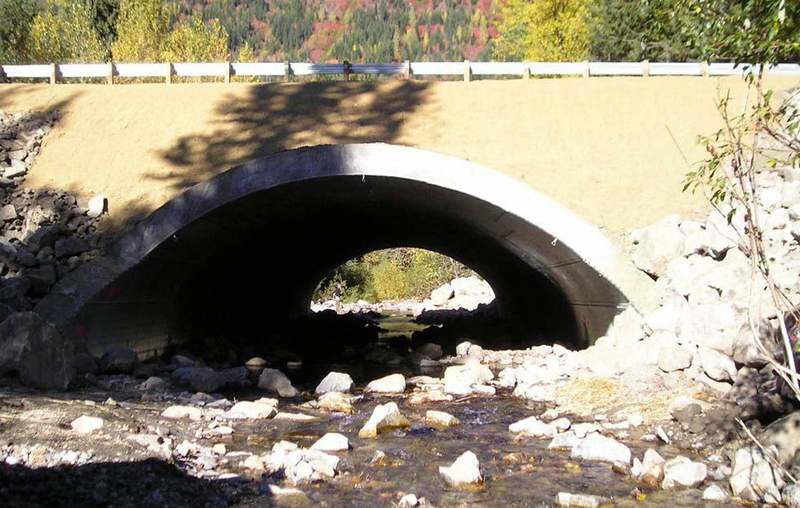Tribes demand speedier culvert fixes for salmon
Published 5:00 am Wednesday, October 14, 2009

- A completed culvert designed to allow salmon to migrate up and down Mill Creek near Stevens Pass, Wash. Native American tribes are asking a federal judge to order Washington to increase the pace of fixing culverts that block salmon runs.
SEATTLE — A federal judge should order Washington state to drastically increase the pace of fixing culverts that block salmon passage because nothing else will get the job done in a reasonable amount of time, a lawyer for Native American tribes said Tuesday.
John Sledd, representing nine of the 19 tribes in the case, asked U.S. District Judge Ricardo Martinez to order repairs to end salmon blockages caused by all state highway culverts within 20 years and those caused by culverts under the jurisdiction of other state agencies within six years.
Two tribal fisheries managers, Charlene Krise of the Squaxin Island reservation near Shelton and Lorraine Loomis of the Swinomish reservation near La Conner, told the judge their people have been hard-hit spiritually as well as economically by the depletion of salmon runs that is at least partly the result of bad culverts.
Assistant Attorney General Rene Tomisser argued that the case was a “distraction” from cooperative salmon restoration efforts by governmental agencies, tribes and private interests and that, if granted, the tribes’ timetable would focus excessively on one aspect at the expense of others such as habitat restoration, hatcheries and changes in harvesting and hydroelectric dam operations.
Presiding over a tangle of fishing rights litigation dating from 1970, Martinez ruled in August 2007 that the state must ensure that its thousands of culverts do not block salmon migration, cutting the catch of the iconic fish on which tribes have relied from time immemorial for subsistence, culture and commerce.
Under treaties dating from the mid-19th century, the tribes must be allowed not only to fish but to catch fish, and the state is obligated not to diminish salmon runs with culverts, the judge ruled.
Tribal fishing activists, leaders and scientific experts have complained that decrepit and ill-designed water conduits beneath roadbeds have blocked more than 250 miles of streams to adult salmon trying to reach spawning grounds and to juvenile fish heading out to sea.
Both sides agree that the culverts need to be fixed — Tomisser noted that the state began fixing bad culverts in 1991, 10 years before that aspect of the issue was raised in federal court — but negotiations on the pace of the work have run aground.
“That summary judgment reinforced the tribes treaty rights. Now is the time to enforce it,” Sledd said.
An average of $2.3 million is needed to fix each of the 807 state Transportation Department culverts that pose a significant blockage to salmon and adopting the tribes’ timetable would boost spending on the highway share alone from about $15 million in the current biennium to $185 million, Tomisser said.






